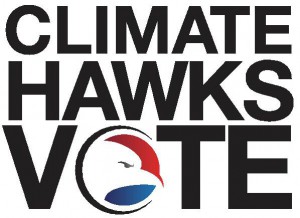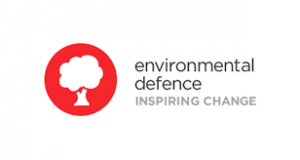This is the second part in my series of posts related to the upcoming election.
[Click here for Part I: Important Election and Voting-related Websites & Organizations.]
[Click here for Part III. Specific Ways to Help.]
 Various environmental groups make endorsements of candidates for Senate, House, and President. Some groups endorse a lot of candidates, and others focus their endorsements and advocacy on a smaller set. For example, the Sierra Club endorses candidates in many races, at all levels of government. NRDC Action Fund and NextGen Climate have only endorsed people for some Senate races and for President; not for House races. Climate Hawks Vote endorses a select set of candidates who have been especially strong climate leaders. Some groups limit their endorsements mainly to candidates in tight races, while others don’t. Each group has its own criteria, which you can learn about via the links to their sites (see the key below). Some groups will be adding additional endorsements as we get even closer to the election.
Various environmental groups make endorsements of candidates for Senate, House, and President. Some groups endorse a lot of candidates, and others focus their endorsements and advocacy on a smaller set. For example, the Sierra Club endorses candidates in many races, at all levels of government. NRDC Action Fund and NextGen Climate have only endorsed people for some Senate races and for President; not for House races. Climate Hawks Vote endorses a select set of candidates who have been especially strong climate leaders. Some groups limit their endorsements mainly to candidates in tight races, while others don’t. Each group has its own criteria, which you can learn about via the links to their sites (see the key below). Some groups will be adding additional endorsements as we get even closer to the election.
 To find endorsements for Governors, state legislators, and local-level candidates or issues, find your state’s League of Conservation Voters and your local Sierra Club chapter and look up their endorsements. A few of their Governor endorsements are listed at the end of this post.
To find endorsements for Governors, state legislators, and local-level candidates or issues, find your state’s League of Conservation Voters and your local Sierra Club chapter and look up their endorsements. A few of their Governor endorsements are listed at the end of this post.
Below you can see which candidates (for Senate, House, and President) received endorsements from one or more of the following groups (as of 9/29/2016).
[11/16/16 UPDATE: Candidates who won their races have been identified in the listing below. “Won” has been added after their names.]
Key:
- League of Conservation Voters endorsement
 Sierra Club endorsement
Sierra Club endorsement- NRDC Action Fund endorsement
- Climate Hawks Vote endorsement
- NextGen Climate endorsement
Senate
CA: Kamala Harris (2, 3, 4—see key) -Won
CO: Michael Bennet (1, 2, 3) – Won
CT: Richard Blumenthal (2, 3) – Won
FL: Patrick Murphy (1, 2)
HI: Brian Schatz (2, 3, 4) – Won
IA: Patty Judge (1)
IL: Tammy Duckworth (1, 2, 3, 5) – Won
LA: Foster Campbell (2) – TBD
MD: Chris Van Hollen (1, 2) – Won
MO: Jason Kander (1, 2)
NC: Deborah Ross (1, 2, 5)
NH: Maggie Hassan (2, 5) – Won
NV: Catherine Cortez Masto (1, 2, 3, 5) – Won
NY: Charles Schumer (2, 3) – Won
OH: Ted Strickland (1, 2, 3, 5)
OR: Ron Wyden (1, 3) – Won
PA: Katie McGinty (1, 3, 5)
VT: Patrick Leahy (1, 3) – Won
WA: Patty Murray (1, 2, 3) – Won
WI: Russ Feingold (1, 2, 3)
House
(in alphabetical order, by state and then by candidate’s last name)
AZ: Ruben Gallego (2) – Won
AZ: Raul Grijalva (1, 2) – Won
AZ: Matt Heinz (2)
CA: Pete Aguilar (1, 2) – Won
CA: Doug Applegate (1)
CA: Nanette Barragan (1, 2, 4) – Won
CA: Karen Bass (2) – Won
CA: Xavier Becerra (2) – Won
CA: Ami Bera (1, 2) – Won
CA: Julia Brownley (1, 2) – Won
CA: Salud Carbajal (1, 2, 4) – Won
CA: Bryan Caforio (1, 2)
CA: Tony Cardenas (2) – Won
CA: Judy Chu (2) – Won
CA: Susan Davis (2) – Won
CA: Mark DeSaulnier (2) – Won
CA: Michael Eggman (1)
CA: Anna Eshoo (2) – Won
CA: John Garamendi (2) – Won
CA: Mike Honda (2)
CA: Jared Huffman (1, 2) – Won
CA: Barbara Lee (2) – Won
CA: Ted Lieu (2, 4) – Won
CA: Zoe Lofgren (2) – Won
CA: Alan Lowenthal (1, 2) – Won
CA: Doris Matsui (2) – Won
CA: Jerry McNerney (1, 2) – Won
CA: Grace Napolitano (1, 2) – Won
CA: Bao Nguyen (2)
CA: Jimmy Panetta (2) – Won
CA: Nancy Pelosi (2) – Won
CA: Scott Peters (1, 2) – Won
CA: Lucille Roybal-Allard (2) – Won
CA: Raul Ruiz (1, 2) – Won
CA: Linda Sanchez (1, 2) – Won
CA: Adam Schiff (2) – Won
CA: Brad Sherman (2) – Won
CA: Jackie Speier (2) – Won
CA: Eric Swalwell (2) – Won
CA: Mark Takano (2) – Won
CA: Mike Thompson (2) – Won
CA: Norma Torres (2) – Won
CA: Juan Vargas (2) – Won
CA: Maxine Waters (2) – Won
CO: Morgan Carroll (1, 2, 4)
CO: Diana Degette (2) – Won
CO: Ed Perlmutter (2) – Won
CO: Jared Polis (2) – Won
CO: Gail Schwartz (1, 2)
CT: Joe Courtney (2) – Won
CT: Rosa DeLauro (2) – Won
CT: Elizabeth Esty (1, 2) – Won
CT: Jim Himes (1, 2) – Won
CT: John Larson (2) – Won
DE: Lisa Rochester (1) – Won
FL: Kathy Castor (2) – Won
FL: Charlie Crist (1) – Won
FL: Val Demings (1) – Won
FL: Ted Deutch (2) – Won
FL: Lois Frankel (2) – Won
FL: Alcee Hastings (2) – Won
FL: Al Lawson (1) – Won
FL: Stephanie Murphy (1) – Won
FL: Frederica Wilson (1, 2) – Won
GA: Hank Johnson (2) – Won
GA: John Lewis (2) – Won
GA: David Scott (2) – Won
HI: Tulsi Gabbard (2) – Won
IA: Dave Loebsack (2) – Won
IA: Jim Mowrer (1, 2)
IA: Monica Vernon (1, 2)
ID: James Piotrowki (1)
IL: Cheri Bustos (2) – Won
IL: Danny Davis (2) – Won
IL: Bill Foster (2) – Won
IL: Luis Gutierrez (1, 2) – Won
IL: Robin Kelly (2) – Won
IL: Raja Krisnamoorthi (1, 2, 4) – Won
IL: Mike Quigley (2) – Won
IL: Bobby Rush (2) – Won
IL: Jan Schakowsky (2) – Won
IL: Brad Schneider (2) – Won
IN: Shelli Yoder (1)
KY: John Yarmuth (2) – Won
MA: Michael Capuano (2) – Won
MA: Katherine Clark (2) – Won
MA: Bill Keating (2) – Won
MA: Joseph Kennedy III (2) – Won
MA: Jim McGovern (2) – Won
MA: Seth Moulton (2) – Won
MA: Richard Neal (2) – Won
MA: Niki Tsongas (2) – Won
MD: Anthony Brown (1, 2) – Won
MD: Elijah Cummings (2) – Won
MD: John Delaney (1, 2) – Won
MD: Steny Hoyer (1, 2) – Won
MD: Jamie Raskin (1, 2, 4) – Won
MD: Dutch Ruppersberger (2) – Won
MD: John Sarbanes (2) – Won
ME: Emily Cain (1, 2)
ME: Chellie Pingree (2) – Won
MI: Paul Clements (1, 2)
MI: John Conyers (2) – Won
MI: Debbie Dingell (1, 2) – Won
MI: Gretchen Driskell (1, 2)
MI: Lon Johnson (1, 2)
MI: Dan Kildee (1, 2) – Won
MI: Brenda Lawrence (1, 2) – Won
MI: Sander Levin (2) – Won
MI: Suzanna Shkreli (2)
MN: Terri Bonoff (1)
MN: Angie Craig (1, 2)
MN: Keith Ellison (2) – Won
MN: Betty McCollum (2) – Won
MO: Emanuel Cleaver (2) – Won
MO: Lacy Clay (2) – Won
MO: Bill Otto (2)
MT: Denise Juneau (1)
NC: Alma Adams (1, 2) – Won
NC: G.K. Butterfield (2) – Won
NC: David Price (2) – Won
NH: Ann Kuster (2) – Won
NH: Carol Shea-Porter (1, 2) – Won
NJ: Josh Gottheimer (1) – Won
NJ: Donal Norcross (2) – Won
NJ: Frank Pallone (1, 2) – Won
NJ: Bill Pascrell (2) – Won
NJ: Donald Payne (2) – Won
NJ: Albio Sires (2) – Won
NJ: Bonnie Watson-Coleman (2) – Won
NM: Michelle Lujan Grisham (2) – Won
NM: Ben Ray Lujan (2) – Won
NV: Ruben Kihuen (1, 2) – Won
NV: Jacky Rosen (1, 2) – Won
NV: Dina Titus (2) – Won
NY: Yvette Clark (2) – Won
NY: Joseph Crowley (2) – Won
NY: Colleen Deacon (1)
NY: Mike Derrick (2)
NY: Eliot Engel (2) – Won
NY: Adriano Espaillat (1) – Won
NY: DuWayne Gregory (1)
NY: Brian Higgins (2) – Won
NY: Hakeem Jeffries (2) – Won
NY: Nita Lowey (2) – Won
NY: Carolyn Maloney (2) – Won
NY: Sean Patrick Maloney (1) – Won
NY: Grace Meng (2) – Won
NY: Kim Myers (1)
NY: Jerrold Nadler (2) – Won
NY: John Plumb (1)
NY: Jose Serrano (2) – Won
NY: Louise Slaughter (2) – Won
NY: Tom Suozzi (1) – Won
NY: Zephyr Teachout (2)
NY: Paul Tonko (1, 2) – Won
NY: Nydia Velazquez (2) – Won
OH: Joyce Beatty (2) – Won
OH: Marcia Fudge (2) – Won
OH: Marcy Kaptur (2) – Won
OR: Suzanne Bonamici (1) – Won
OR: Peter DeFazio (1) – Won
PA: Brendan Boyle (2) – Won
PA: Bob Brady (2) – Won
PA: Matt Cartwright (1, 2) – Won
PA: Christina Hartman (1, 2)
PA: Steve Santarsiero (1, 2)
PA: Kerith Strano Taylor (2)
RI: David Cicilline (2) – Won
RI: Jim Langevin (2) – Won
SC: Jim Clyburn (2) – Won
TN: Steve Cohen (2) – Won
TX: Joaquin Castro (2) – Won
TX: Llloyd Doggett (2) – Won
TX: Pete Gallego (1, 2)
TX: Vicente Gonzalez (1) – Won
TX: Al Green (2) – Won
TX: Gene Green (2) – Won
TX: Eddie Bernice Johnson (2) – Won
TX: Sheila Jackson Lee (2) – Won
TX: Marc Veasey (2) – Won
TX: Tom Wakely (4)
UT: Doug Owens (1, 2)
VA: LuAnn Bennett (1, 2)
VA: Don Beyer (1, 2) – Won
VA: Gerry Connolly (2) – Won
VA: Suzan DelBene (1)
VA: Jane Dittmar (2)
VA: Donald McEachin (1, 2) – Won
VA: Bobby Scott (2) – Won
WA: Suzan Delbene (1, 2) – Won
WA: Denny Heck (2) – Won
WA: Derek Kilmer (1, 2) – Won
WA: Joe Pakootas (2)
WA: Adam Smith (2) – Won
WI: Tom Nelson (1)
WV: Mike Manypenny (2)
President of the United States
Hillary Clinton (1, 2, 3, 5)
I think it’s worth noting that none of these five environmental organizations (or any other national environmental organization that I am aware of) have endorsed the Green Party candidate. There are a number of good, sound reasons for this, beyond just viability (ability to win). For one thing, outside of a handful of local races, the U.S. Green Party has not shown itself to be an effective organization; it does not have any traction or outreach to speak of, and it has not been an effective or outspoken advocate for environmental causes. It’s telling that, in between presidential elections every four years, no one (including those of us who have long been deeply involved in the environmental movement) hears anything about or from the Green Party. While the Party’s platform is strong on environmental issues, a platform is useless if there’s no organizational acumen or political clout or credibility to get that platform implemented. But even more importantly, many of us remember what happened in the 2000 election: People who voted for Nader instead of Gore kept Gore from winning FL and NH—he only needed to win one of those states—(and Nader votes almost cost him Oregon, as well), and Bush ended up winning the election by a very small margin. People who don’t know or remember history are often doomed to repeat it. Please don’t repeat this travesty. Learn from history. Use hindsight and foresight. There is no such thing as a “safe” state for playing with your vote.
The stakes are even higher now than they were in 2000. DT is a neo-fascist, wannabe dictator with no regard for or understanding of democracy and zero interest in addressing climate change or environmental issues; if he were to be elected, it would be, as Andrew Sullivan put it, an “extinction-level event.”
Lastly, here are some state LCV organizations’ endorsements of a few state Governors:
MT: Steve Bullock – Won
NC: Roy Cooper – Won
OR: Kate Brown – Won
VT: Sue Minter
WA: Jay Inslee – Won
Also see:
2016 Eection and Voting Information (Part I): Important Websites & Organizations
and
2016 Election (Part III): Specific Ways to Help
September 30, 2016

 NEW: 2021 update: Municipalities, States, and Countries that are Achieving, Approaching, or Committed to 100% Renewable Energy
NEW: 2021 update: Municipalities, States, and Countries that are Achieving, Approaching, or Committed to 100% Renewable Energy
 This is a listing of some enviro-relevant groups in Canada (though not all of them are focused solely on environmental issues).
This is a listing of some enviro-relevant groups in Canada (though not all of them are focused solely on environmental issues).













